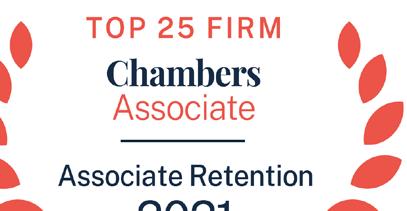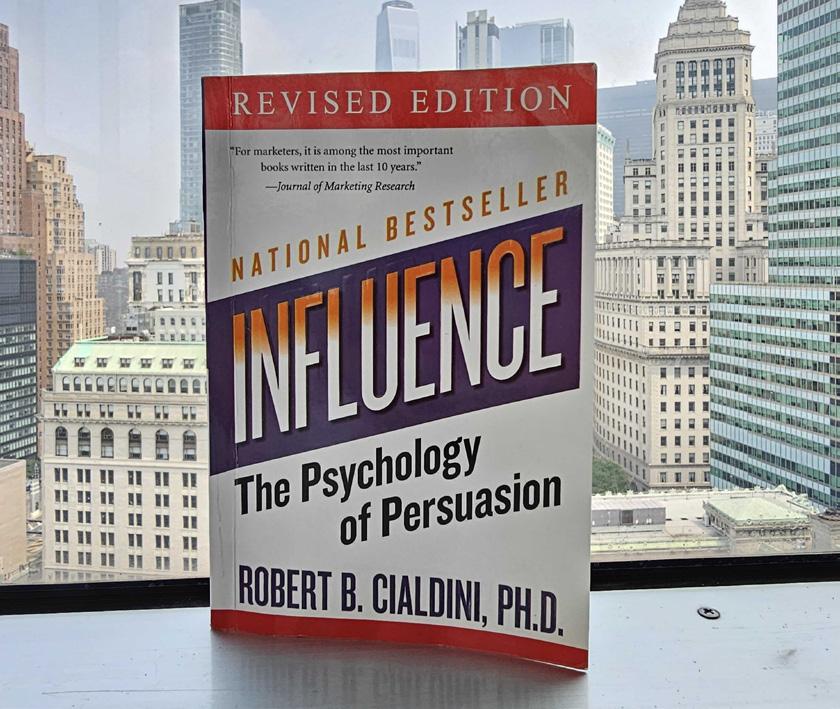Awarding Attorney Fees in Access to Property Proceedings
The right to access another’s property codified in RPAPL §881, once described, as recently as 2002, as a “little-used law” (as quoted in Rosma Development, LLC v. South, 5 Misc.3d 1014(A), 798 NYS2d 713 (Sup. Ct., King. Co., 2004) (Schmidt, J.), is now used for lawsuits that arise on a frequent basis, amidst the constantly evolving New York City building scene, when a property owner or developer requires access to an adjoining property to facilitate completion of either a new or renovation construction project.
RPAPL §881 is one of New York’s most important real estate laws as it facilitates building by allowing one property owner access onto another’s property—allowing buildings to rise in small spaces by entering their neighbor’s property.
This right to access statute, RPAPL §881, provides an expedited process whereby the property owner or a developer can commence a special proceeding to obtain a court order granting the owner/developer a temporary license to enter the property of an adjoining owner to make “improvements or repairs” to the owner/developer’s property (a) where the planned improvements or repairs cannot be made “without entering the premises of an adjoining owner” and (b) where “permission so to enter has been refused.”
In a prior article, the authors noted that “[t]he single most litigated issue in [RPAPL] § 881 cases involves the determination of the amount, if any, of the license fees and reimbursable expenses [including attorney’s fees] to be paid” to the owners of adjoining properties.
In general, “[a]lthough the determination of whether to award a license fee is discretionary, the grant of a license pursuant to RPAPL §881 often warrants the award of contemporaneous license fees, because ‘an owner compelled to grant access should not have to bear any costs resulting from the access.’” New
York Public Library v. Condominium Board
of Fifth Avenue Tower, 170 AD3d 544, 95 NYS3d 200, 201 (1st Dept. 2019) (citation omitted).
Nevertheless, RPAPL §881 provides that a “license shall be granted by the court in an appropriate case upon such terms as justice requires” (emphasis added). Whether or not “justice” requires an award of attorney fees incurred by an adjoining owner, in connection with negotiating an “appropriate” license agreement, is also subject to court discretion.
THE ROLES OF THE ADJOINING OWNER’S ATTORNEY AND ITS A & E’S
When a developer approaches an adjacent owner regarding a construction project, the adjacent owner incurs professional fees for: (a) engaging attorneys to draft and negotiate the terms and conditions of the “appropriate” license agreement based upon the nature of the project, and (b) engaging consulting professionals, including architects and structural and geotechnical engineers to review and comment on the developer’s proposed plans.
THE ATTORNEYS
Adjoining owners incur attorney fees for one or more of the following: (a) recommending appropriate architects and/or structural and geotechnical engineers to review the owner’s or developer’s plans, (b) drafting and negotiating the terms and conditions of the “appropriate” license agreement, and, when the parties are unable to agree on license terms, (c) representing the adjoining owner (i) in an 881 proceeding initiated by the project owner for an adjoining owner’s alleged “refusal” to grant permission to access its property, or (ii) in a plenary action, to enjoin entry to the adjoining owner’s property by the builder/owner, where the court converts the action to an 881 proceeding, see, e.g., Mindel v. The Phoenix Owners Corp., 210 AD2d 167, 620 NYS2d 359 (1st Dept. 1994).
THE CONSULTING PROFESSIONALS
An adjoining owner incurs professional ar-
chitect and engineering fees in reviewing plans of the project owner, to determine (a) whether the developer’s plans comply with the New York City Building Code (“Code”) to provide the required protections, (b) the scope of the intrusion required, (c) the safety and protective nature of the proposed means of access to the adjoining owner’s premises, (d) whether there are less intrusive means available that nevertheless provide an equal degree of safety and protection, and (e) the impact on the adjacent owner’s use and enjoyment of the premises.
The professionals’ review of and comment on the owner/developer’s initial plan often causes the plans to be revised to reduce both the impact and the risk to the adjoining owner’s property and to ensure there is Code compliance. See, e.g., North 7-8 Investors, LLC v. Newgarden, 43 Misc.3d 623, 982 NYS2d 704 (Sup. Ct., Kings Co., 2014) (cited with approval in DDG Warren LLC v. Assouline Ritz 1, LLC, 138 NYS3d 539 (1st Dept. 2016).
Moreover, if the developer has proposed underpinning or other permanent encroachments to the adjacent owner’s property, the developer will need to seek express permission to do so, or risk having its petition in an 881-proceeding dismissed by the Court. See, e.g., Highbridge Facilities v. Cromwell Avenue Investors, LLC, Index No. 810953/2021 (Sup. Ct., Bronx Co., February 23, 2022) (Guzman, J.).
THE PRE-LITIGATION ROLE


Prior to the commencement of any litigation, the role of the adjoining owner’s attorney is multi-faceted. He/she needs to review the architect/engineer’s expert written opinion concerning the builder/owner’s construction plan and the related protection plan proposed for when access is required to the adjoining owner’s property.
Read more: bit.ly/AwardingAttorneyFees

INFO@ALBLAWFIRM.COM WE GET RESULTS 1 SUMMER 2023
REAL ESTATE LITIGATION Adam Leitman Bailey | John M. Desiderio | Joanna C. Peck
A Street Fight in the Bronx
ADAM LEITMAN BAILEY’S FIRM HELPED SETTLE A BRONX BRAWL OVER LAND BETWEEN TWO PARTIES AND BROUGHT VICTORY AGAINST A LONG-STANDING POWERFUL FAMILY IN NEW YORK.


This matter came to Adam Leitman Bailey, P.C. (ALBPC) in the beginning of 2017. The resulting decision issued by the Appellate Division on March 9, 2023—six years later— shows how dogged investigation was important to finding the evidence necessary to persuade both the trial court and the appellate court to rule in favor of ALBPC’s client.

Close Avenue is a mapped but unopened and unpaved, one-block-long street in the Bronx, running north-south between Bruckner Boulevard and Story Avenue. It is mainly used to facilitate access to and from the commercial warehouse businesses located along the block. Since the 1960s, there have been gates at both the North and South ends of the street, which are locked after business hours to prevent theft and vandalism.
Since 1999, the O’Farrell family, who operate a scaffolding business and own the two lots on opposite sides of the southern end of Close Avenue (the “900 Lots”), have controlled the Story Avenue Gate (“Gate 1”) that controls ingress and egress to Close Avenue between the 900 Lots. In 2015, the O’Farrells installed a second gate (“Gate 2”) at the northern end of their two lots to control access to and secure that part of Close Avenue lying between their lots, to protect the trucks and equipment overnight.
The O’Farrells also own a lot on the eastern side of Close Avenue (the “950 Lots”) that is located immediately above the 900 Lots they own at the southern end of the block on the same side of the avenue.
This was a battle to the end. The adversary spent his life savings trying to beat our client, the O’Farrells, but no person’s life savings is enough to beat Adam Leitman Bailey P.C.’s
premiere team of Bailey/Desiderio/Metz. “Even the now-retired head of a title insurance company told me (Bailey) that this would be our first losing case involving prescriptive easements. We slugged it out and gave it everything we had.” War waged in the courthouse and disrupted the peaceful Bronx. Even the CIA and Defense Contractors became part of the story. “On a personal note, I am very proud to work with these legendary lawyers. This was a case we were supposed to lose. Heart won out. I never had any doubts. Not for a minute,” noted Adam Leitman Bailey.
scriptive period.
CPA based its claim on its predecessor owner’s control of the avenue and CPA’s purported use and maintenance of the whole length of the avenue from as early as the 1970s and that the O’Farrells essentially were Johnny-come-lately interlopers who were preventing CPA’s tenants from the free use and access of Close Avenue to carry on their businesses.
WE GET
All the remaining lots on Close Avenue between the O’Farrells’ properties and the northern end of Close Avenue are owned by Ciminello Property Associates (CPA). All of the CPA properties on Close Avenue are rented to CPA tenants.
For many years, the O’Farrells permitted CPA’s tenants to use the eastern half of Close Avenue abutting the O’Farrells’ 950 Lot. However, after Gate 2 was installed, CPA objected to certain Jersey barriers the O’Farrells had installed alongside the 950 Lot, claiming that the barriers obstructed the access of its commercial tenant, who rented the property across from the 950 Lot.
CPA then sued the O’Farrell companies, which own the 950 Lot and the two 900 Lots, and sought a declaratory judgment that Ciminello had either an implied or prescriptive easement over the full length and width of Close Avenue.

A prescriptive easement is the right to use and pass over land to another property or public thoroughfare after having done so, without permission, for a ten-year period without interruption. The courts hold that the principles for acquiring title to the property by adverse possession are analogous to acquiring a prescriptive easement, except that there is no requirement for the claimant to prove exclusive use during the ten-year pre-
In addition to seeking compensatory and punitive damages for alleged trespass, CPA asked the Court to permanently enjoin the O’Farrells from placing physical impediments or otherwise interfering with the ability of CPA, its tenants and their respective invitees and guests to make use of Close Avenue to its full length and width, or to otherwise interfere with CPA’s easement in, upon, over and through Close Avenue.
Despite CPA’s claim that it controlled the use of Close Avenue and that CPA had been solely responsible for maintaining the Close Avenue roadbed and for snow removal for more than 30 years before the O’Farrels acquired their Close Avenue properties, the O’Farrells were able to produce evidence refuting CPA’s claims.
CPA initially moved for a preliminary injunction to enjoin the O’Farrell’s control of Gates 1 and 2. However, the trial court ruled that “CPA’s evidence ‘falls far short of establishing a prescriptive easement by clear and convincing evidence.’” The trial court held that “a review of all of the evidence shows that CPA’s use of the purported easement was not hostile but appears to have been permitted as a matter of neighborly accommodation.”
The trial court’s ruling denying the grant of a preliminary injunction was affirmed on appeal. The Appellate Division ruled that CPA had “failed to demonstrate a likelihood of success on the merits.”
Read more: bit.ly/StreetFightinBronx
212.825.0365 WWW.ALBLAWFIRM.COM 2 SUMMER 2023
COMMERCIAL LANDLORD REPRESENTATION Adam Leitman Bailey | John M. Desiderio | Jeffrey R. Metz
Adam Leitman Bailey, P.C., On Behalf of Board, Defeats Preliminary Injunction by Self-Dealing Owner in Complicated Litigation




New York City’s extremely high density, especially in Manhattan, can yield high-stakes battles for even small spaces. When disputes about such spaces cannot easily be consensually resolved, legal “street fights” often develop rapidly, generating expedited proceedings. Successfully navigating these circumstances invokes an aphorism by British politician Charles Buxton: “In life, as in chess, forethought wins.” A recent matter handled by Adam Leitman Bailey, P.C. exemplifies Buxton’s advice.
TWO UNHAPPY SHAREHOLDERS
The building in dispute is a co-op exclusively for commer cial tenants. The tenants include, among others, artists and crafts people, and is located in a busy location not far from a major Hudson River crossing. One of the tenant-shareholders, who acquired their shares and unit in the mid-1990s and was a former Board director and officer, owned a unit abutting a loading dock and a modest portion of the building’s parking area. This shareholder was an artist who created very large sculptures that often had to be shipped out in pieces. Another shareholder operated a studio on a higher floor. Both had been members of the Board, with the artist also serving as an officer. They were no longer on the Board in 2023 and resented certain new directors. The artist had also used the portion of their unit that comprised a section of the parking area as their own private lot, and from time to time rented the space to third parties, keeping
the monies for themselves. Both shareholders had also become accustomed to unfettered yearround 24-hour 7-days-a-week access to loading docks and elevators.
The new Board believed the situation was too chaotic, presented safety issues, and would be a financial burden on the Corporation. The Board, therefore, passed several new “House Rules,” which, among other things, prohibited using the loading docks for loading and unloading, making clear there was no parking or standing at the building; regulated use of elevators (including requiring coordination with the building’s management); and detailed fines that would be imposed for violating the House Rules or proprietary
A LAWSUIT IS FILED
The two shareholders were incensed at these new requirements. Adam Leitman Bailey, P.C. representing the Corporation and its Board, attempted to consensually resolve the dispute but the negotiations were unsuccessful. The two shareholders commenced a special lawsuit, known as an “Article 78 proceeding”, which is a legal process used to challenge actions or inaction by, among others, co-op boards. The shareholders claimed the Board had acted beyond its authority in enacting the new rules (known in legal parlance as an “ultra vires” act). Specifically, the shareholders asserted that the Board was not permitted to enact these new House Rules without first amending the proprietary lease,


which, if correct, required obtaining over 66% of shareholders to approve the amendments. The artist also claimed entitlement to use the parking area as they saw fit based on the governing documents that they had received when they purchased their unit, and both claimed the Board had no right to regulate their elevator or loading dock access. They further contended that the Board had acted in bad faith, noting that prior to the lawsuit, a Board member had instructed building staff to lock a gate which later resulted in a citation from the City for preventing ingress and egress.
Additionally, the Petition claimed that even if the governing documents did not grant the artist unfettered use of the section of the parking area that was included in their unit, the shareholder was nonetheless entitled to use it as they desired under a doctrine called “adverse possession” (which, if certain conditions are met, permits a trespasser to claim title and ownership rights of a piece of real estate that they otherwise do not own). The shareholders also accused the Board of breaching its obligations to the Corporation when it refunded a deposit to a counterparty to an air-rights development deal, with the counterparty being a company managed by the Board’s new President.
The shareholders launched their attack by accompanying their Article 78 petition with a request for a temporary restraining order (TRO) and preliminary injunction which, if granted, would prohibit the Board from enforc-
ing the newly enacted House Rules. The Court, without requesting an appearance or opposition papers, denied the TRO. However, it scheduled an expedited hearing to address the petitioners’ preliminary injunction application. The hearing would not address the shareholders’ adverse possession theory or their complaint about the deposit refund, but as a practical matter, those issues had already been presented to the Court and had to be kept in mind. With less than a week to prepare a response, Adam Leitman Bailey, P.C. snapped into action.
THE BOARD RESPONDS
It was clear at the outset that the petitioners faced a daunting hurdle. The shareholders were challenging the Board’s business judgment regarding how to manage the corporation. Under New York law the “business judgment rule” provides that so long as corporate directors have not breached their fiduciary obligations to the corporation they serve, a court may not question their judgment, even if the results demonstrated that the directors’ decisions were unwise. Another obstacle was that the petitioners had not demonstrated that, even if they were correct, their grievances warranted injunctive relief, rather than monetary damages. Nor did it appear that the shareholders could demonstrate they would be irreparably harmed if they complied with the House Rules.
Read more: bit.ly/Defeats-Coop
INFO@ALBLAWFIRM.COM WE GET RESULTS 3 SUMMER 2023
CONDOMINIUM & COOPERATIVE LITIGATION Adam Leitman Bailey | John M. Desiderio | Joshua D. Glatter | Stuart A. Klein
After Setbacks with Former Counsel, Adam Leitman Bailey, P.C. Investigates and Overwhelms Court and Adversary with Evidence in Non-Primary Residence Case
LANDLORD REPRESENTATION Vladimir Mironenko
The first case involved a grandfathered-in rent stabilized apartment and tenant suspected of non-primary residence and subletting for over a decade.
The CO-OP brought several unsuccessful cases before turning to Adam Leitman Bailey, P.C.
Following a comprehensive investigation, the tenant was linked to his home in Long Island, including by deeds, DMV records including car registrations, Facebook and other social media accounts, and statements made under oath in unrelated litigation. Further, apartment inspections and searches conducted by a private investigator revealed illegal subtenants.
Utilizing the information discovered, we crafted a comprehensive lease termination and non-renewal notice to the tenant and commenced a holdover proceeding. Facing a mountain of evidence against him, the
tenant did not appear and the court scheduled an inquest.
To prepare, we obtained certified documents from numerous government agencies and courts, as well as worked with CO-OP management to conduct additional apartment inspections and non-military investigations, and coordinate testimony.
At the inquest, reviewing witness testimony and documents, the court directed final judgment of possession for our client against the tenant and all occupants and directed the issuance and execution of a warrant of eviction.
Adam Leitman Bailey, P.C. Obtains Judgment After Inquest for CO-OP in Failure to Assign Stock and Lease Case

In the second case, both shareholders of the cooperative apartment died, leaving the apartment with an unauthorized family member.
Pursuant to the proprietary lease and house rules, the CO-OP attempted to work with the occupant to assign the shares and
lease, conduct a mandatory occupant admissions committee interview, and gain access to inspect the apartment. The occupant refused to cooperate.
We obtained applicable death certificates, and, through surrogates’ court procedures, obtained documentation for estate representation. We then served requisite notices to cure and terminate and commenced a holdover proceeding, wherein no estate representative nor occupant appeared.
At the inquest, utilizing detailed testimony, we authenticated CO-OP governing documents and certified death certificates and surrogates court records. We similarly obtained a judgment of possession with direction to issue and execute a warrant of eviction.
Adam Leitman Bailey, P.C. partner Vladimir Mironenko represented the CO-OP in the summary proceedings to Assign Stock and Lease Case.
Read more: bit.ly/NonPrimaryResCase
Adam Leitman Bailey, P.C. Wins Case of First Impression Regarding an Attorney’s Ability to Zealously Represent a Client Without Fear of Reprisal from the Client’s Adversary

 Adam Leitman Bailey | Jeffrey R. Metz
Adam Leitman Bailey | Jeffrey R. Metz
In a case which personally affected Mr. Bailey and the members of his firm, a disgruntled developer attempted to have Mr. Bailey abandon his client—the lone tenant in a building which the developer sought to turn into luxury condominiums—by suing Mr. Bailey and the firm for $25,000,000.00 in damages for alleged abuse of process and tortious interference with prospective economic interest. The suit claimed that Mr. Bailey waged a media campaign in an effort to portray the developer in a bad light and thus force a favorable settlement for his client. However, the suit was frivolous from the onset and, accordingly, the Bailey firm moved to dismiss the action and damages under the anti-SLAPP (Strategic Lawsuit Against Public Participation) statutes, which allow for recovery when a suit is brought in a public forum involving a matter of public interest which has little or no chance of success but is designed to chill free speech and force the expenditure of unnecessary legal fees. The trial court dismissed the developer’s suit, finding that the claims could not be sustained as a matter of law. However, the court declined to award relief under the anti-SLAPP statutes.
The firm appealed to the Appellate Division, First Department and argued that a critical public policy issue was involved, namely, the ability of any attorney to zealously represent his client without fear of reprisal from the adversary of his client. The firm demon-
strated that the developer had filed a bad faith complaint which had no chance of success but was designed to chill Mr. Bailey’s right to free speech in defense of the harassment his client was facing, to force Mr. Bailey to forgo representation of his client in the face of a potentially ruinous lawsuit, to force Mr. Bailey to expend time and resources to defend against the suit, and to besmirch Mr. Bailey in the eyes of the public and the judiciary. The developer attempted to argue that the matter was private and therefore the statute does not apply.
In a first impression ruling involving the application of the anti-SLAPP statutes to matters of attorney conduct in defense of their client, the Appellate Division agreed with Bailey’s position that the suit brought against him and the firm was a public, not a private matter. This ruling modified the trial court’s order to direct a remand to establish the costs and legal fees due to Mr. Bailey and the firm. The court wrote, “Plaintiff’s action involved public petition and participation, as defendant’s statements, which concern a landlord/tenant dispute between a large real estate developer and a sole holdout tenant constituted and an exercise of free speech in connection with an issue of public interest, rather than a purely private matter.” The court’s ruling reaffirmed the principle that attorneys must be permitted to defend their clients without fear of reprisal.
Jeffrey R. Metz represented Mr. Bailey and the firm before the trial court and the Appellate Division.
Read more: https://bit.ly/ALBPCWins
212.825.0365 WWW.ALBLAWFIRM.COM 4 SUMMER 2023
APPELLATE DIVISION
Adam Leitman Bailey, P.C. Victoriously Defeats Motion to Dismiss in Housing Court Eviction Proceeding
LANDLORD REPRESENTATION
Dov Treiman | Michael Nesheiwat
Representing the landlord of a building in the Bronx, Adam Leitman Bailey, P.C. successfully defeated a motion to dismiss a nonpayment proceeding brought by tenants illegally operating a business out of the building.



We commenced a Supreme Court action against the tenants seeking equitable relief in the form of specific performance and an injunction. While that action remained pending, we thereafter commenced a nonpayment proceeding by filing a notice of petition and petition after serving the tenants with the requisite rent-demand for the tenants’ failure to pay rent to the landlord for months, leaving a significant balance in arrears.
The tenants, through counsel, moved to dismiss the nonpayment petition on the grounds that there is another action pending in Supreme Court between the same parties for the same cause of action. We immediately opposed the tenants’ motion to dismiss
the nonpayment proceeding, arguing that the Supreme Court action and the nonpayment proceeding seek inherently different relief, and do not consist of the same cause of action, even though they may arise out of the same subject matter.
After the motion was fully briefed, the Court set the matter down for oral argument, where we zealously advocated for our client’s right to seek rent arrears in Civil Court, the proper forum for such claim.
The Court agreed with and adopted our arguments in its decision, and ultimately denied the tenants’ motion to dismiss.
The landlord is represented by Dov Treiman and Michael Nesheiwat from at Adam Leitman Bailey, P.C. Mr. Treiman drafted the opposition papers and Mr. Nesheiwat argued before the Court on behalf of the landlord.
Read more: bit.ly/VictoriouslyDefeatsMotion
Adam Leitman Bailey, P.C. Swiftly Overcomes Obstacles to Property Sale Posed by Architectural Designer
PURCHASE & SALE OF HOMES
Adam Leitman Bailey | Brandon M. Zlotnick


Adam Leitman Bailey, P.C. successfully represented an owner of vacant property in Sag Harbor in persuading the client’s former architectural designer to cease making meritless objections to the client’s efforts to sell the property.

The client had previously retained the designer to design plans for construction of a single-family house on the property. However, the client was forced to abandon her construction plans when the designer suddenly informed her that the construction would cost twice as much as he had previously estimated. The client paid the designer the entire amount that would have been owed him, under the contract, in the event that the designer had completed his duties in both the design development and construction phases of the project. This was so notwithstanding that the designer had not yet submitted architectural plans for approval by the village department of buildings, which was required for the design development phase. In addition, the designer had not advised the client regarding the administration of the construction contract, as required for the construction phase, because construction of the project had not yet begun.
Nonetheless, when the client attempted to sell her property, the designer told prospective purchasers that the client still owed him money and that if they purchased the property, they would have to pay him the balance. The designer also claimed that the client could not provide any purchaser of the property with the plans that the designer had prepared, although the contract between the client and the designer expressly permitted her to do so. Fearful of liability to the designer, realtors would not list the property for sale as long as the designer continued to maintain his objections.
The client wished to sell the property quickly, because the sum-
mer property selling season was rapidly approaching and she did not wish to lose out on any opportunities resulting from further delay.
Adam Leitman Bailey, P.C. contacted the designer, first directly and then through counsel, and demanded, through both telephone calls and letters, that the designer cease and desist from claiming the client continued to owe him money and that she could not provide the plans to a purchaser of the property, and that he submit the plans for the property to the village’s building department. In the event the designer did not agree to the demands, Adam Leitman Bailey, P.C. promised to file a lawsuit against the designer, and obtain news coverage in connection with the suit that would be unfavorable to the designer.
In less than two weeks, the designer agreed to all of the client’s demands, without needing to resort to real estate litigation. The client was able to list her property for sale. After the designer had so acceded, the client wrote to Adam Leitman Bailey, P.C., thanking the firm, and others involved, for the successful resolution of the matter:
Thank you everyone!
You each played an important role to our releasing this beautiful listing page.
Adam, for doing what you do best and scaring the opposition into submission. You are the reason [designer] caved. No question. Brandon, for supporting Adam.
Read more: https://bit.ly/ALBPCSagHarbor
INFO@ALBLAWFIRM.COM WE GET RESULTS 5 SUMMER 2023
* * *
Tricky Issues Representing National Company In Long Term Lease for Vacant Land Ends Successfully
COMMERCIAL LEASING Thomas Furst | Vladimir Mironenko

Adam Leitman Bailey, P.C. negotiated a twenty-year lease on the owner’s behalf with national company The Energy Tenant, which finances and manages all aspects of energy storage development and operations to significantly and sustainably lower electricity bills for the commercial and industrial sector, electric cooperatives, and municipal utilities. This company also serves as a capital partner and resource for solar and storage developers.
Negotiation of this lease entailed several tricky issues. The property involved was vacant land and had a trucking tenant, on a two-year lease, which parked its vehicles there. However, to determine feasibility of the project on this property, The Energy Tenant needed two years of due diligence, including invasive testing, all the while the trucking tenant was using the property. As a result, Adam Leitman Bailey, P.C. had to delicately negotiate a very specific consent which permitted due diligence to proceed.
Security was also a critical factor for the client. The client was concerned that a lease default could result in significant energy storage equipment which would be both very expensive and environmentally sensitive to dispose of. Accordingly, Adam Leitman Bailey, P.C. negotiated a letter of credit security deposit of many millions, which did not burn down throughout the twenty-year term. Moreover, Adam Leitman Bailey, P.C.
required the letter of credit to remain in place until all the tenant’s property was removed and negotiated a strict time limit for such removal, failing which the letter of credit could be accessed by our client as compensation for removal which was not timely.
The Energy Tenant was not prepared to risk a twenty-year commitment and required a termination right. In an unusual provision, Adam Leitman Bailey, P.C. required this tenant to agree that, in the event of such termination, it would forfeit the entire multi-million-dollar security deposit.

The Energy Tenant required the client to indemnify it for pre-existing environmental hazardous substances on the property. The client asked us to minimize its exposure under this provision and so Adam Leitman Bailey, P.C. required The Energy Tenant to conduct a Phase I, and if so indicated, a Phase II, during the due diligence period and stipulated that indemnification would not apply to any condition discovered, or which should reasonably have been discovered, during the due diligence period.
With several tricky issues, the Lease took some time to be finalized. However, due diligence was proceeding, and the client was getting paid while these negotiations continued. Our client was pleased that it had the benefit of numerous protections as well as a very valuable lease.
Read more: https://bit.ly/TrickyIssues
Adam Leitman Bailey, P.C. Cleans Up A Challenging

Foreclosure Case
And Secures Summary Judgment In Favor Of The Lender
FORECLOSURES
Jackie Halpern Weinstein | Courtney J. Lerias | Danny Ramrattan

Adam Leitman Bailey, P.C. was retained by a lender to clean up a messy foreclosure action in which summary judgment had already been denied on the grounds that the lender failed to establish that 90 Day Notices were sent to the borrower in compliance with RPAPL § 1304, a statute that consistently proves to be the Achilles heel of lenders.


Compliance with RPAPL § 1304 can be “established with proof of the actual mailings, such as affidavits of mailing or domestic return receipts with attendant signatures, or proof of a standard office mailing procedure designed to ensure that items are properly addressed and mailed, sworn to by someone with personal knowledge of the procedure.” JPMorgan Chase Bank, Nat'l Ass'n v. Skluth, 177 A.D.3d 592, 594 (2d Dept. 2019). In this particular case, prior counsel was unable to obtain an affidavit from the lender’s servicer, proving that the notices were, in fact, sent. As a result, prior counsel was forced to submit only copies of the notices as proof. The Court found this to be in-
sufficient.
After being retained, Adam Leitman Bailey, P.C. set out to remedy this. Using its contacts in the lending world, Adam Leitman Bailey, P.C. was able to obtain a proper affidavit of mailing, based on personal knowledge of the servicer’s standard office mailing procedure, proving that the notices were properly sent.
But, this was only the first step. Usually, a lender only gets one chance at summary judgment, i.e. a ruling from the Court that the lender has established its foreclosure claim and that the borrower fails to establish even a factual question as to any defenses thereto. However, Adam Leitman Bailey, P.C. has become an expert in moving to renew otherwise denied summary judgment motions on behalf of lenders. We cite to case law that holds that submission of a corrective affidavit by a person with knowledge is appropriate grounds for a renewed motion for summary judgment, and we give a detailed explanation as to why such affidavit could not have been produced on the
original motion. This is exactly what Adam Leitman Bailey, P.C. did here: we provided the Court with affirmations from all of the lender’s prior counsel, detailing what steps were taken to obtain the affidavit from the lender’s servicer and the lack of response from the servicer.
Ultimately, the Court agreed that the lender made the requisite showing in order to renew its summary judgment motion, and upon renewal, found that the affidavits of mailing obtained by Adam Leitman Bailey, P.C. more than sufficiently demonstrate that the required 90 Day Notices were, in fact, sent. Therefore, Adam Leitman Bailey, P.C. secured summary judgment in favor of its client, thus permitting the client to avoid the expense and hassle of a trial.
Read more: bit.ly/ForeclosureCase
212.825.0365 WWW.ALBLAWFIRM.COM 6 SUMMER 2023
Jackie Halpern Weinstein, Esq., Courtney J. Lerias, Esq., and Danny Ramrattan, Esq. of the Foreclosure Litigation Group at Adam Leitman Bailey, P.C. secured this successful result for the client.
Adam Leitman Bailey, P.C. Convinces Shareholder Not to Sue By Demonstrating that Leaks Flooding Unit Came from Different Apartment
CONDOMINIUM & COOPERATIVE OWNER SHAREHOLDER REPRESENTATION
Adam Leitman Bailey, P.C. was retained by the shareholder of an apartment in a prestigious NYC cooperative for help after her apartment allegedly caused leaks into two neighboring units.

A. First Affected Apartment
The first unit was directly below our client’s. That shareholder threatened litigation against our client, claiming that his apartment was suffering from water damage from our client’s apartment (specifically, from a leak in the air conditioning unit in the client’s gym room), which the shareholder claimed significantly affected the market value of his apartment. However, there were two fatal issues to this shareholder’s claim: (1) it was in the midst of the Covid-19 pandemic, and market values across the city had plummeted, and (2) the shareholder submitted no evidence whatsoever for his allegations that the water damage to his unit emanated from our client’s unit. It was possible that the shareholder was attempting to use our client as a scapegoat for his unit’s lower market value during the pandemic.

In any event, Adam Leitman Bailey, P.C.’s first step was commissioning its own independent engineering investigation of our client’s apartment, which proved that the air conditioning unit in our client’s gym room was not the cause of any alleged leaks into the apartment below. The engineer noted that the subject air conditioning unit was an all-electric, “through-wall unit” with no plumbing associated with it whatsoever. The report found no evidence of water damage to the unit’s millwork enclosure or the carpet adjacent thereto, which would indicate a leak had occurred from the unit. The report also made clear that the air conditioning unit was properly pitched. The report did, however, indicate that the three 91-year-old steel windows in the client’s gym room could be a potential source of water infiltration into the building, given their overall condition and
Adam Leitman Bailey | Rachel Sigmund McGinley
age. Armed with this information, Adam Leitman Bailey, P.C. performed a review of the Board meeting minutes, which revealed a significant history of leaks throughout the building, including issues with the building’s windows. In all of those instances, the Board took action to have the leaks addressed. Adam Leitman Bailey, P.C. was, therefore, able to use this information to hold the Board responsible for all repairs of our client’s windows, as is required under the proprietary lease.
In the end, Adam Leitman Bailey, P.C. successfully avoided a lawsuit from the below shareholder and the client’s windows were repaired.
B. Second Affected Apartment
Another tenant in the apartment below our client’s alleged that it was suffering from leaks emanating from our client’s apartment. This shareholder claimed that her master dressing room was destroyed by water damage that occurred over a weekend when the shareholder was away. Adam Leitman Bailey, P.C. investigated the facts and it turned out that a certain pipe associated with our client’s unit may have been the cause, but there was no way to know for sure without performing destructive probes in both the shareholder and our client’s apartments. Ultimately, Adam Leitman Bailey, P.C. was able to achieve a favorable settlement for our client with this shareholder, with our client paying for a portion of the cost to restore the dressing room. Adam Leitman Bailey, P.C. recognized there was a risk that the shareholder discussed above in part “A” could resurrect a claim against our client if he learned that our client reimbursed another shareholder for potential leak damages. To avoid this risk, Adam Leitman Bailey, P.C. held the payment in escrow until this shareholder’s statute of limitations period against our client had expired.
Adam Leitman Bailey and Rachel Sigmund McGinley represented the client in this matter.
Read more: https://bit.ly/PreventsLitigationForLeaks
Clearing Hurdles and Encroachments to get Deals Done
Unforeseen issues and circumstances often arise during real estate transactions and the attorneys at Adam Leitman Bailey, P.C. have the experience and expertise to maneuver and procure successful outcomes for their clients.
During the recent representation of a seller of residential real estate, upon receipt of the title report and survey of the premises, it became apparent that our client did not have a driveway on his property that would allow for ingress and egress between the house and the abutting public road. What our client understood to be his driveway situated on his property actually encroached onto the premises adjacent to the north by several feet. As a result, the title company would not ensure the right to use any part of the asphalt drive lying outside of the record lines. The driveway was being used as a shared driveway
with the adjacent lot owner but there did not exist a shared driveway agreement on record. Adam Leitman Bailey, P.C. drafted a Driveway Easement for Ingress and Egress and a Driveway Maintenance Agreement that was approved by the title company, the purchaser’s attorney, and the adjacent lot owner’s attorney, successfully curing the title issue and allowing our client to close on the sale of his home.
In the representation of a purchaser of residential real estate, the seller due to circumstances that arose after already entering into the contract, became unable to proceed with the transaction and sought to cancel the contract. Adam Leitman Bailey, PC. negotiated a favorable settlement for our clients, who in turn were able to leverage the proceeds of the settlement towards the purchase of a new home that recently closed successfully, and the clients are thrilled!

Keith A. Bialek, Esq. of the Transactional Department at Adam Leitman Bailey, P.C. oversaw both transactions for the firm.


Read more: https://bit.ly/ClearingHurdles

INFO@ALBLAWFIRM.COM WE GET RESULTS 7 SUMMER 2023
PURCHASE & SALE OF HOMES Keith A. Bialek
Understanding the Limited Liability Transparency Act
On June 20, 2023, the New York State Assembly passed amendments to the LLC Transparency Act amending sections of New York’s Limited Liability Company Law to require the disclosure of information relating to the beneficial owners of a limited liability company registered or qualified to do business in New York. The amendments take effect one year after the bill is signed by the Governor and would establish a public searchable database of the names of an LLC’s beneficial owners as well as the name and business address of the company. Though largely rooted in concerns about abuses of the LLC corporate form, particularly with respect to combatting money laundering and other forms of illicit finance, as is so often the case, changes to a legal regime can carry in their wake the additional “law of unintended consequences.” In this era of broad dissemination of information and misinformation on social media, the new law subjects individuals with a legitimate need for privacy to abuse and possible harassment by others who can ascertain their identity. Because the public database also contains the address of the business, and the business address may also be the residential address of the beneficial owners, persons who wish them harm could learn where they live. On the
Purchasing a Cooperative Unit in a Trust
PURCHASE AND SALES OF HOMES
Rosemary Liuzzo Mohamed


Purchasing a cooperative (“co-op”) unit in the name of a trust has become more and more frequent in recent years. For a long time, many co-ops would not approve of trust ownership. However, several co-ops have come to an understanding that if the proper protections are put in place, a trust does not have to pose a threat or burden to the co-op corporation and can be an effective means of estate planning or privacy protection for its shareholders.
To start, an interested purchaser may want to review the proprietary lease and/or by-laws for language pertaining to the permittance of trust ownership as some co-ops still do not allow it. The co-op’s attorney or management co. could also advise on this. If allowable, each co-op will likely have certain fees to be paid and steps to be taken to effectuate the trust transfer which will include, but are not limited to, a legal review of the trust, the submission of an attorney opinion letter and executing a Trust Occupancy Agreement/Guaranty. The Attorney Opinion Letter will likely come from the trust and estates attorney who initially prepared the trust. The letter, accompanied by a true copy of the trust for review, will confirm the name and date of the trust as well as the date of any and all amendments made thereto. Additionally, the letter will confirm the state in which the trust was validly created in accordance with its laws. Lastly, the opinion letter will include any necessary information requested by the individual co-op.
The Trust Occupancy Agreement will be drafted by the co-op attorney and is specific to each transaction. The Agreement is signed by the co-op, trust, guarantor, and unit occupants to, among other things, limit the occupancy of the unit to specific individuals specified in the agreement and provide detailed protections and indemnities to the coop including any personal guaranty if required.
Lastly, the shareholder or purchaser wishing to transfer or purchase shares in a trust will be responsible for any legal fees in connection with the review of the trust and preparation of the accompanying legal agreements.
Read the full article: bit.ly/PurchasingCooperativeUnitTrust
other hand, the new law does nothing to further the objective of crime prevention. If the primary purpose is to facilitate the prosecution of those who perpetrate crimes under the cover of an LLC, then there is no need to have this information on a public database and should be limited to access by the relevant governmental authorities.
Under the statute as amended, the term “beneficial owner” means an individual who, directly or indirectly, through any contract, arrangement, understanding, relationship, or otherwise (i) owns or controls at least 25% of the ownership interests of the entity or (ii) exercises substantial control over the entity. “Substantial control” has been defined as the ability to make important business decisions on behalf of the entity. Ownership or control of a company or its ownership interests may include the following: joint ownership with one or more other persons; through another individual acting as a nominee, intermediary, custodian, or agent; as trustee, grantor/settlor, or beneficiary of a trust; or through ownership or control of one or more intermediary entities that separately or collectively own or control ownership interests of the reporting entity.
Read the full article: https://bit.ly/LimitedLiabilityAct
Adam Leitman Bailey, P.C. Successfully Defeats Motion for a Stay, Allowing Client to Move Forward with Eviction in Spite of Disputed Ownership
 LANDLORD REPRESENTATION William M. Pekarsky | Dov Treiman
LANDLORD REPRESENTATION William M. Pekarsky | Dov Treiman


In a deeply emotional dispute between Adam Leitman Bailey, P.C.’s client and one of her family members, Adam Leitman Bailey, P.C. prevailed on behalf of its client. In this Housing Court proceeding, Adam Leitman Bailey, P.C. 's client sought to evict a holdover tenant - her adult son - after the son’s disgraceful mistreatment of his mother.
The client, an elderly mother, has been living with her son in her Brooklyn home for just under a decade. Over the years, the client’s relationship with her son began to deteriorate due to her son’s frequent failure to make timely rental payments and general disregard for his mother’s desire for a peaceful, safe, and quiet home during this delicate stage in her life. The client’s son would go to great lengths to terrorize his mother, as he often locked her out of the basement of her home, prevented her from accessing the home’s boiler facilities during the cold winter months, and consistently acted disrespect-
fully toward her. To make matters worse, the son even commenced a Supreme Court action against Adam Leitman Bailey, P.C.’s client, his half-brother, and a host of other defendants claiming, without any substantive proof, that he is the rightful owner of the home.
After years of built-up tension, the client’s relationship with her son became so strained to the point that she began to fear for her safety and well-being. Eventually, the client’s day-to-day life living with her son became so fraught with hostility that the client had no other choice but to seek recourse through a summary eviction proceeding before Kings County Housing Court. Accordingly, Adam Leitman Bailey, P.C. 's client commenced the Housing Court proceeding with the hopes that one day, after being free from her son’s torment, she would be able to live a stress-free and peaceful life.
Read the full case study: bit.ly/ALBPCSucessHoldoverTenantCase
212.825.0365 WWW.ALBLAWFIRM.COM 8 SUMMER 2023
PURCHASE
AND SALES OF
HOMES Bonnie Reid Berkow | Joshua D. Glatter
Staff Testimonials
“These last two years have been nothing short of exceptional” – Samantha Horowitz, Paralegal, Discusses Her Time at Adam Leitman Bailey, P.C. Before Going to Fordham Law School (Scan the QR Code to Watch the Full Testimonial)



"Hi, my name is Samantha Horowitz. I am a paralegal here at Adam Leitman Bailey, P.C. and I just completed my tenure, and I’m now heading off to law school at Fordham University School of Law – Go Rams! We would be here a long time if I tried to tell you all that I’ve learned during my time at this firm. It’s been such a rewarding experience in terms of getting the opportunity to work with so many different attorneys, working on so many different cases, and really being given such a breadth of responsibility. I have been at the front and back of so many different cases, from drafting the initial documents, reviewing different methods and strategies with the attorney, to filing a notice of entry for a decision in order, whether it was positive and, in our favor, or unfortunately not in our favor sometimes. But the opportunities that I’ve been given to learn more about the law, learn more about the practice of law – it’s been such an honor and I feel such an enormous amount of gratitude that I’ve been given this chance to experience what it’s like to be an attorney and learn from what I think are some of the best in the industry before even starting my career as a law student and then eventually a lawyer, so it’s been really, really great.
So I started as just a paralegal with our Supreme Litigation Group but the role has really grown into supporting the majority of the attorneys at the firm, which has been exciting because I have been able to work on different cases both in the Supreme Court and the civil court, and then I’ve also worked very closely with Jeffrey Metz, who’s the lead attorney of our Appellate Division practice here and I cannot say enough nice things about Jeff. In every sense of the word, he has taken me under his wing and allowed me the opportunity to learn and make mistakes and learn from the mistakes and really see how a case can continue on even after a decision has been rendered. He has encouraged me both professionally to continue to pursue my legal dreams and he’s also, on a personal note, been such a rock of support and a friend during the last two years. I can’t say enough about what he has meant to me, just before I head off to law school and start on these next steps, so it’s been really, really great.
I’m also incredibly grateful for Adam’s guidance over the past two years. He has consistently asked my opinions on different cases, he’s brought me into his office to discuss a particular proceeding or a client, and I know when he’s asking my opinion it’s because he genuinely cares about it. He’s not asking because he wants me to feel involved, he actually wants me to be involved in the case. He’s constantly coming into my office asking if I have enough work or if I want to give my opinion on a certain matter and that level of involvement, I don’t know if you would get that at another firm, especially somebody my age and having what is considered probably little experience compared to other paralegals in the industry. But Adam has also taken me under his wing and given me the opportunity to learn from him and from the other attorneys at this firm. I just feel such a sense of confidence going into law school because I have the experiences and wisdom that Adam has imparted on me while I’ve been here. But I owe so much of my gratitude and the utmost respect for Adam Leitman Bailey, P.C. and how it has completely transformed my life in the best ways."
Sam’s Send-Off Toast to Law School



INFO@ALBLAWFIRM.COM WE GET RESULTS 9 SUMMER 2023
New York’s LLC Law Might Be Bad for Everyone, Not Just Criminals and Slumlords
PRESS MENTIONS Adam Leitman
Bailey
The bill’s language is directly aimed at those who bypass sanctions, avoid taxes, fund terrorist organizations and support organized crime. Landlords who use LLCs are more likely to have code violations, higher rents and more evictions attached to their properties compared to “non-corporate” owners, according to the legislation.
“Should we be naming the average person on the street? I think it should be narrowly tailored to where it’s aimed toward those that you want the law to reach,” real estate attorney Adam Leitman Bailey told CO. “People from out of the country with a certain amount of money who do not live in these residences full time, who are using it for the purpose of money laundering. That’s not what this bill achieves; it’s a very dangerous law and is probably going to cause a lot of problems.”
A hypothetical improved version of the law would target only foreign investors and widen the exemptions for people who need to protect their privacy, such as some of Bailey’s more high-profile clients who, due to their fame, are able to live without interference from fans and stalkers because of their current ability to register their New York City apartments under an LLC. Cash transactions in particular should be flagged as requiring the disclosure of beneficial owners, according to Bailey, as famous people and legit corporations usually don’t buy property that way.
“There are privacy rules that are supposed to be set up, but, based on the acts of the New York State Legislature, I do not expect their regulations to protect the privacy of my wealthy and famous clientele as well as the ability to prevent crimes that will happen in the future,” Bailey added in an email.
As it stands, the bill has exemptions only for people enrolled in an address confidentiality program or companies acting as a “relator” in what’s called a qui tam action, an LLC bringing charges against individuals or entities on behalf of a government. Read the full article: bit.ly/EffectsofNewYorkLLCLaw

Citing Anti-SLAPP Statute, Appeals Court Awards Adam Leitman Bailey Attorney Fees, Costs for Having to Defend Against $25M ‘Malicious Media Campaign’ Suit

PRESS MENTIONS Adam Leitman Bailey
Well-known real estate lawyer Adam Leitman Bailey on Tuesday claimed another victory in a headline-grabbing landlord-"holdover” tenant fight that has involved multiple $25 million lawsuits, as well as cross-claims and cross-appeals, brought in state court.


In a terse opinion, the Appellate Division, First Department court ruled that based on the state’s anti-SLAPP statute, Bailey is due attorney fees and costs in the wake of him being sued personally by a real-estate developer that claimed he’d waged a “malicious media campaign” aimed at “shaking down” the developer, which has been in litigation with Bailey’s client.
Bailey’s “statements, which concern a landlord/tenant dispute between a large real estate developer and a sole holdout tenant [represented by Bailey], constituted comments and an exercise of free speech in connection with an issue of public interest, rather than a purely private matter,” wrote a First Department appellate panel while explaining its decision to award costs and fees to Bailey and his law firm under New York’s anti-SLAPP statute as amended in 2020.
The unanimous panel then pointed to the dismissal last September of the $25 million suit leveled by the developer that had claimed Bailey and his Manhattan-based firm had waged a “malicious media campaign” in an effort to “shake down,” or extract, a higher payout from the developer for Bailey’s client.
“The action was ‘without a substantial basis in fact and law,’ as demonstrated by the [lower] court’s dismissal of the complaint for failure to state a claim,” the panel said while quoting New York’s Civil Rights Law § 70-a[1][a].
Anti-SLAPP statutes, which target Strategic Lawsuits Against Public Participation, or SLAPP suits, give redress to those who are forced to defend themselves against civil suits that don’t have merit and that may only have been brought in an effort to dissuade, or pressure, the defendants from producing negative publicity about something.
In the May 2022 suit leveled by 215 West 84th St. Owner LLC, which is an arm of Manhattan condominium developer Naftali Group, against Bailey and his 29-lawyer firm, the plaintiff brought claims of abuse of process and tortious interference with economic advantage.
Read the full article: bit.ly/AppealsCourtVictoryCitingAnti-SLAPPStatute
212.825.0365 WWW.ALBLAWFIRM.COM 10 SUMMER 2023
SUMMER 2023
Adam Leitman Bailey, P.C. Featured in Chambers Associate’s 2023 Guide and is Ranked in 5 Categories Nationwide in the 2023 Associate Satisfaction Survey


Adam Leitman Bailey, P.C. has earned impressive rankings in 5 categories according to the Chambers Associate survey. The firm has been recognized as a Strong Performer in Quality of Life, demonstrating its commitment to fostering a fulfilling work environment. Furthermore, Adam Leitman Bailey, P.C. are a Top 25 Firm for Associate Retention. Associate Satisfaction has also been recognized as a Strong Performer, reflecting the firm's dedication to ensuring the well-being and contentment of its team members. In the realm of Diversity, Equity & Inclusion, Adam Leitman Bailey, P.C. has achieved an Excellent ranking, ranking among the top 25 firms. Lastly, the firm's commitment to Career Development has been acknowledged as Excellent, placing them among the top 25 firms in this category as well. These accolades from the Chambers Associate survey serve as a testament to the firm's commitment to excellence in all facets of law practice.
If the world of New York real estate was a game of Monopoly, Adam Leitman Bailey, P.C. would have its pieces spread across the board. “We have the biggest clients in the world, and we have some of the smallest,” eponymous founder Adam Leitman Bailey tells us. “We do the biggest and most exciting cases with the most interesting results.” Contrary to the size of its massive clientele – made up of some of the top Fortune 100 companies – the firm houses fewer than 30 attorneys. The firm also has a much smaller focus than its Big Apple peers, something which drew our interviewees to the firm: “If you want to be a real property attorney, Adam Leitman Bailey, P.C. focuses and specializes in just that. You don’t have to do other things, so it’s a great firm for those who want to focus.” If that doesn’t bring home the level of Adam Leitman Bailey, P.C.’s prestige, look no further than Chambers USA, where founder Adam Leitman Bailey achieves high rankings for his experience in real estate litigation. Bailey’s own expertise helps solidify the firm’s “reputation for achieving favorable outcomes in trial settings,” one associate explained. Associates were familiar with the high quality of Adam Leitman Bailey, P.C.’s work before they even got to the firm –work which encourages lawyers on the other side of cases to step up their game at trial. “People here joke, ‘What miracle do we have to perform today?’ I don’t promise miracles,” Bailey tells us. “We’re here to give you creative lawyering. And to produce victories.”
Associate Satisfaction and Associate Retention
The firm covers the litigious and transactional sides of all things real estate. Associates typically end up doing one or the other, but there’s the option to do both as well. There’s a free-market system in place for work assignment, but sources reported that work typically comes through one partner: “One partner will assign me work or things will come into my inbox from existing clients. Work assignment is independent here, but partners will often reach out to ask if you have time to help on matters.” Bailey highlights that “newer associates go to court right away or get to do closings in transactional.” Associates echoed this level of early responsibility since: “I appreciate that they have faith that you can handle something.” Reaffirming this sentiment, one associate said, “What makes this firm so great is that attorneys, regardless if they are partners or managing attorneys, they want to hear feedback from anyone including us younger associates…I really don’t think that our titles prevent us from truly digging our heels in to any case that might come up. The great thing about the culture here is that it does allow for autonomy, it allows for associates and other staff on whatever level they might be to really contribute to the firm on particular cases but also the firm as a whole.” The practice is litigation-heavy, and the department works on a little bit of everything within that. One associate said, “Working here… you are not just doing regular cases. You’re doing all types of different work, so it keeps it exciting, keeps it engaging.” The scale ranges from representing institutional clients in foreclosure cases, to representing individuals with title insurance. “We’re familiar with anything that clients bring in and can go full speed ahead. You don’t want a client to come with an issue that requires learning a new area of law.” Junior litigators can get their hands on all aspects of
the job, including research, drafting motions, and attending hearings and trials. “Given our small size,” one associate explained, “as a junior associate or even as an intern you’re able to do some significant work – not just discovery.” Another associate said, “From day 1 you are thrown into it, you are going to court, meeting with clients, going to conferences.” On the transactional side of things, one interviewee summed up how “a lot of attorneys here are well rounded and can tackle anything with their skill set. You get pulled in on random matters, so you have to be flexible.” Typical tasks include reviewing documents and trust agreements, prepping contracts, writing letters and working on leasing matters and tenant buyouts. There are an array of matters and clients to get involved with, from tenants, to landlords, to shareholders of cooperative boards. “We usually act as corporate counsel to companies that reach out with whatever real estate issues they’re facing,” one insider explained, “but sometimes our practice can blend into litigation.” The nature of the role means that associates get a bunch of direct client contact: “I’d give it a ten out of ten. Partners always encourage you to reach out to clients directly and give them a call to find out what they need. I appreciate that, as you have to do things yourself to gain experience and improve as an attorney.”
Career Development
According to interviewees, the firm encourages associates to take the time to discuss career progression with more senior attorneys. “I’ve had conversations with partners about taking the next step in my career, as well as personal matters,” one associate explained. “I feel comfortable sitting down to talk about things.” As a smaller firm, career development is structured more informally. Rather than entering the firm on a formal track to partnership, for instance, associates are encouraged to be proactive and “really seek out questions, answers, and guidance.” One attorney said, “I would recommend working at ALBPC, as an attorney especially because there is so much opportunity for growth.” When it comes to making partner, there are no hard requirements but, according to our interviewees, “the partners here now started as Adam Leitman Bailey, P.C. associates. Partnership isn’t specifically discussed but it’s implied.” So, associates on track to make partner should be able to demonstrate “consistent work ethic – you’re putting in time, billing your hours and doing the best that you can at your job. But you don’t have to bring in clients to become partner, that’s clear.”
Quality of Life
In addition to the factors mentioned above, Adam Leitman Bailey, P.C. prioritizes the well-being and quality of life of its employees in many ways. The firm takes pride in offering a great office space, carefully designed to provide a comfortable and productive work environment. Every associate, extern, staff member and intern gets their own office with a beautiful view of the Statue of Liberty. The office is equipped with modern amenities, state-of-the-art technology, and comfortable workstations, ensuring that associates have the necessary tools and resources to excel in their work. Recognizing the importance of physical fitness and overall health, Adam Leitman Bailey, P.C. goes the extra mile by providing Equinox gym reimbursements for its associates. This valuable benefit allows them to maintain an active lifestyle and prioritize their well-being. By supporting their physical fitness goals, the firm acknowledges the importance of work-life balance and encourages a healthy mindset among its team members. To foster a sense of camaraderie and strengthen relationships within the firm, Adam Leitman Bailey, P.C. organizes various social events. “This firm’s culture is very hard working but at the same time very welcoming,” an employee said. Happy hours and summer lunches are just a few examples of these occasions, creating opportunities for associates to socialize, unwind, and connect with their colleagues in a relaxed setting. These events not only promote a friendly and inclusive work culture but also contribute to the creation of a “family atmosphere” where everyone feels supported and valued. One partner said, “The folks that we hire are the folks that you want to spend the evening with when you have a tight deadline, that you want to go out and get a drink with, that you want to visit on the weekends and that are good people.”
Read the full article: https://bit.ly/ChambersAssociate2023

INFO@ALBLAWFIRM.COM WE GET RESULTS 11
Adam Leitman Bailey Ranked in the Top 10 Chambers & Partners Leading Real Estate Litigators 2023 and Sole Attorney from Firm with Less than 30 Attorneys making it the only law firm ranked with less than 30 attorneys






Adam Leitman Bailey has been ranked in the top 10 Chambers & Partners Leading Real Estate Litigators for 2023. Adam Leitman Bailey is the only attorney ranked in the top 10 Leading Real Estate Litigators from a firm of fewer than 30 attorneys. This is the 12th year Adam Leitman Bailey has been ranked by Chambers & Partners, making him the longest-ranked attorney out of all of the real estate attorneys ranked by Chambers & Partners in 2023. Adam Leitman Bailey has been ranked each year that real estate litigation has been a category. Chambers & Partners noted that Adam Leitman Bailey is a real estate litigator with substantial expertise in handling high-stakes disputes; frequently participating in complex landlord-tenant disputes.
Chambers & Partners is one of the most renowned and prestigious legal directories in the world. Chambers & Partners now produces eight legal guides covering 185 jurisdictions, in addition to various other guides such as legal career and global practice guides. Chambers is a highly respected and influential London-based research and publishing company that provides rankings of the leading business lawyers and law firms from around the world. The unbiased U.S. national rankings are compiled from the opinions of colleagues and competitors, including general counsel at Fortune 100 companies, high-profile entrepreneurs building up their own private corporations, and significant purchasers of legal services. Chambers conducts rigorous research in its evaluation and rating of lawyers and firms, including interviews with clients and other attorneys. Chambers evaluates the technical legal ability of the lawyers and firms it rates, as well as their reputations for professional conduct, client service, and results obtained. The ranking research company is conducted by 200 Research Analysts, across 200 jurisdictions and provides nearly 6,000 rankings tables, annually collecting hundreds of thousands of responses from clients, the majority via in-depth interviews.
Adam Leitman Bailey, P.C. is excited to share that we have been selected as one of New York’s Best and Brightest Company’s to Work For!

The categories applicants were scored on include: Compensation, Benefits and Employee Solutions; Employee Enrichment, Engagement and Retention; Employee Education and Development; Recruitment, Selection and Orientation; Employee Achievement and Recognition; Communication and Shared Vision; Diversity and Inclusion; Work-Life Balance; Community Initiatives; and Strategic Company Performance.
About the Best and Brightest Programs:
The Best and Brightest Companies to Work For® competition identifies and honors organizations that display a commitment to excellence in operations and employee enrichment that lead to increased productivity and financial performance. This competition scores potential winners based on regional data of company performance and a set standard across the nation. This national program celebrates those companies that are making better business, creating richer lives and building a stronger community as a whole. There are numerous regional celebrations throughout the country, such as Atlanta, Boston, Chicago, Dallas, Detroit, Grand Rapids, Houston, Milwaukee, San Diego, San Francisco, Miami, New York, Charlotte, Denver, Seattle, Nashville, and Portland.
212.825.0365 WWW.ALBLAWFIRM.COM SUMMER 2023
Adam Leitman Bailey, P.C. Ranked as New York’s Best and Brightest Company to Work For 2023
View all Awards on our website: bit.ly/ALBPCAwards
Leading real estate litigation attorney, Adam Leitman Bailey, was interviewed by Shepherd on his favorite books and how they helped him become a successful attorney and leader



Who am I?
My name is Adam Leitman Bailey. I am a lawyer, a writer, an advocate, and a leader. Most importantly, I can not stand injustice.
I wrote...
Finding the Uncommon Deal: A Top New York Lawyer Explains How to Buy a Home For the Lowest Possible Price
What is my book about?
Our recent economic meltdown transformed real estate from a popular investment to financial kryptonite. Too many people purchased homes with mortgages they simply could never afford. The good news: great deals are out there for the taking.
Finding the Uncommon Deal gives you the secrets to discovering and successfully negotiating the lowest prices for the most prized properties available. You'll get the expert advice you need to navigate this changing real estate world.

Titan: The Life of John D. Rockefeller, Sr. by Ron Chernow
Creativity and out-of-the-box thinking made John D. the first billionaire, and those leaders and entrepreneurs looking to sharpen their skills with a fascinating story should make this book a must-read. It made me a better entrepreneur, a smarter businessperson, and a stronger leader among men and women.
Alexander Hamilton by Ron Chernow
No American has done more for New York and America than Alexander Hamilton. No person is more exciting either. I love New York and I love its history. Alexander Hamilton set a great precedent for me to set goals to achieve more than I was achieving, whilst also keeping me humble as I could never achieve as much as he did in his short life.
The Fountainhead by Ayn Rand

"At 18 years old, this book taught me that it was okay to be different and that it was okay to aim for greatness and success without worrying about what other people thought of me. The book also taught me the value of perseverance and the importance of staying true to oneself even in the face of adversity."
Team of Rivals: The Political Genius of Abraham Lincoln by Doris Kearns Goodwin
"This book is a fascinating depiction of Lincoln’s presidency and cabinet. It is full of fantastic lessons on leadership and overcoming obstacles in dark times. Lincoln's leadership style offers valuable insights for today's leaders. Overall, it's a must-read for history buffs and anyone interested in the art of leadership."
Churchill: A Life by Martin Gilbert
Churchill was a great leader and lawyer and showed how to overcome difficult times. No leader in world history has exemplified overcoming great odds to lead a country to beat the Nazis and instill a morale within its people when none existed. Almost every chapter in the book is a lesson on how to be a better leader.
Read the full article: https://bit.ly/ALBPCShepherdBooks
INFO@ALBLAWFIRM.COM WE GET RESULTS 13 SUMMER 2023
The best books that will make you a better and more successful leader
Featured in Top Selling Books
Community
Adam Leitman Bailey, P.C. is excited to read Billionaires' Row. We were surprised to learn that one of our winning cases involving 2 billionaires was featured in the book. Katherine Clarke (@kathyclarke) is one of our favorite real estate reporters and we know that her book will be fabulous. The entire law firm is excited to read her book, especially Adam.

Top Multi-Family Investment Real Estate Broker Writes A Book!
"I remember graduating from law school and searching and searching for books on real estate and real estate investing with great failure. And finding a book on commercial real estate investing a did not exist. So I am thankful to James Nelson, one of the world’s best, for lending his knowledge and his book 'The Insider's Edge to Real Estate Investing', and thank you for such kind words!"


ALB
We are so honored that the number one persuader in the United States, who wrote the number one best-selling book on persuasion, has written this about Adam Leitman Bailey's negotiating tactics:


"For Adam – With my deep personal regards for your mastery of persuasion”
– Dr. Robert B. Cialdini”
212.825.0365 WWW.ALBLAWFIRM.COM 14 SUMMER 2023
-
Building Foundations and Dreams
Kelly Kim Receives the 2023 Raymond “Hap” Harrison Scholarship Award




“IT IS A DREAM COME TRUE”
Kelly Kim, a senior at New Milford High School received the 26th Raymond “Hap” Harrison Scholarship. The scholarship is named after Adam Leitman Bailey’s Track and Cross Country Coach in High School, whom he credits for much of his success, in regards to not only running but to what he has accomplished in his career. Ms Kim was chosen out of all New Milford High School students by the Guidance Department to be a paid intern at Adam Leitman Bailey. She has decided to attend The College of New Jersey.
"Without this scholarship, I wouldn't have been able to get so many opportunities, like to be able to pay for my tuition, which also allows me to immerse myself in different stuff that I would like to do in college. There are so many different clubs and experiences that I want to be able to have and because of the scholarship I'm able to do all those things and I'm really grateful and thankful for it."
"Thanks to Adam, I'm able to have this scholarship and I'm able to go to the college that I want and experience both the things I want to but also new things that I don't know what's coming and because of that, I am so grateful. I'm just very grateful and thankful, so thank you."
2020 Raymond Hap Harrison Scholarship Winner Gives an Update Three Years Later
"With this scholarship, I was able to do anything I wanted in college without worrying about the struggles of paying for it so the scholarship very much helped me. I met Adam in 2019 as well as the entire firm. They all have huge personalities and are truly dedicated to their work. They care about helping others and that constantly encouraged me to get my work done and also have a work ethic in the future. I am super grateful to Adam and the Raymond Hap Harrison scholarship for granting me this award, and without Adam this wouldn't have been possible for me to do anything I wanted to do in college."
To watch the testimonials and learn more about Building Foundations and Dreams: bit.ly/bfadreams
INFO@ALBLAWFIRM.COM WE GET RESULTS 15 SUMMER 2023

ADAM LEITMAN BAILEY, P.C. One Battery Park Plaza, Eighteenth Floor New York, NY 10004 212.825.0365 info@alblawfirm.com RETURN SERVICE REQUESTED Scan here with your smart phone for the online newsletter















 Adam Leitman Bailey | Jeffrey R. Metz
Adam Leitman Bailey | Jeffrey R. Metz














 LANDLORD REPRESENTATION William M. Pekarsky | Dov Treiman
LANDLORD REPRESENTATION William M. Pekarsky | Dov Treiman




























